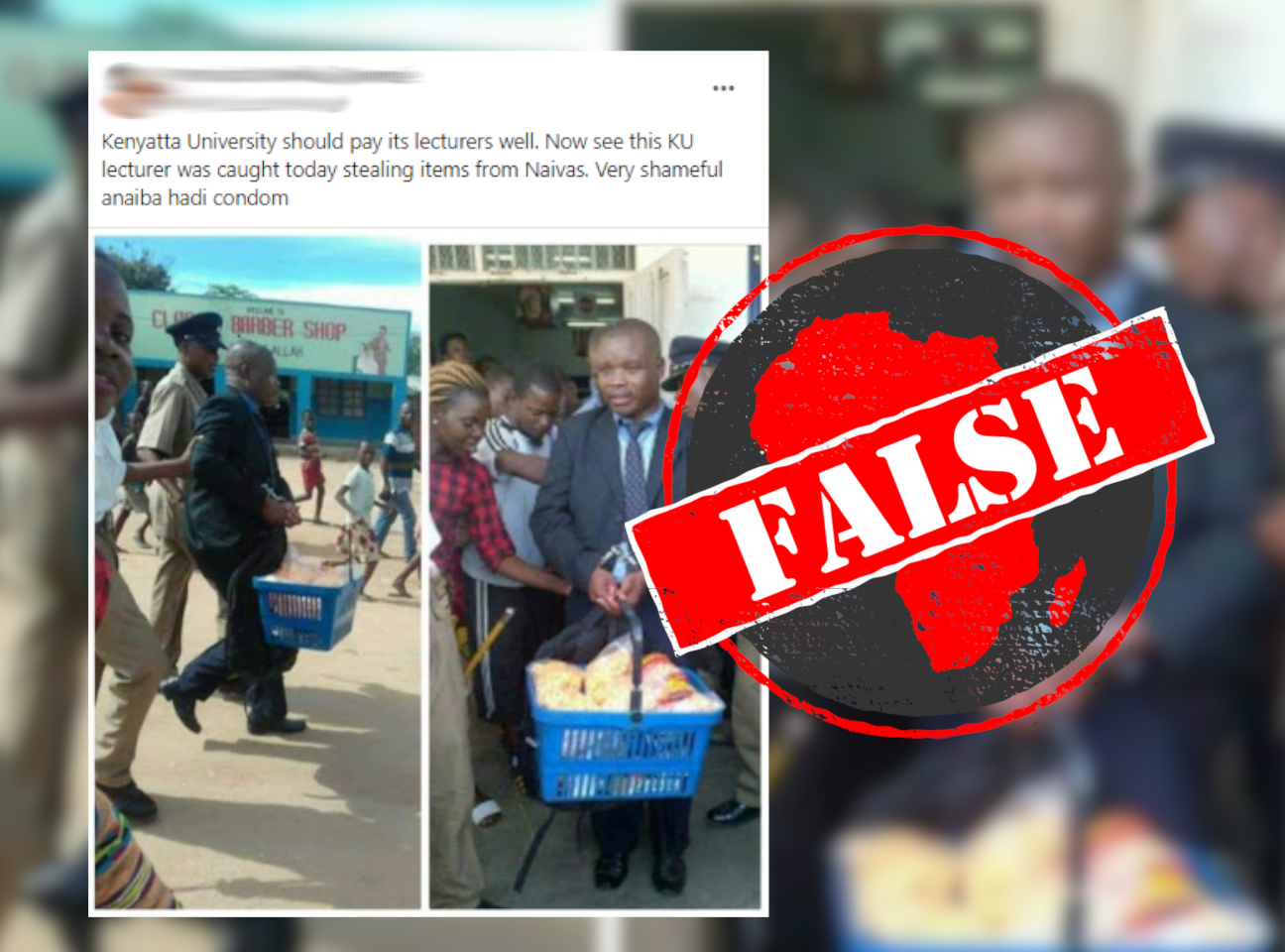Two photos of a man in a suit holding a full shopping basket, escorted by what seems to be a police officer while a curious crowd follows them, was posted on Facebook on 7 May 2022.
“Kenyatta University should pay its lecturers well,” its caption reads. “Now see this KU lecturer was caught today stealing items from Naivas. Very shameful anaiba hadi condom.”
“Anaiba hadi condom” is Kiswahili for “He has even stolen condoms.”
Kenyatta University, a public institution, has its main campus in Nairobi county. Naivas is a Kenyan supermarket chain.
Africa Check discovered that the same Facebook user has posted similar claims before, in November 2018 and August 2019.
The 2019 version claimed that the photos show “a lecturer of Mass communication at MMU” who was “caught stealing from a supermarket”. It added that if not for the police, “he would have died in the hands of a cruel mob. So sad.”
MMU is the Multimedia University of Kenya.
The claim has been posted on group pages with a combined membership of more than 166,000.
But do the photos show a Kenyan university lecturer caught shoplifting? We checked.

Reports from Malawi
The recent post claims the incident happened “today” – 7 May 2022. But a reverse image search reveals that the photos have been online since at least January 2017. And they weren’t snapped in Kenya.
One of the photos was first posted on Malawi news websites. It featured in stories about a polytechnic student being caught stealing in Mangochi, a town in Malawi.
According to the reports, Mangochi police deputy spokesperson Amina Daudi said items worth K45,000 were stolen.
They added that the suspect was from Chikwati village in the Zomba district of southern Malawi.
The incident was also covered in Kenya, but none of the reports said it had happened in Kenya.
And back in December 2018 Kenyatta University tweeted that the shoplifting claim was “fake news”.
Republish our content for free
For publishers: what to do if your post is rated false
A fact-checker has rated your Facebook or Instagram post as “false”, “altered”, “partly false” or “missing context”. This could have serious consequences. What do you do?
Click on our guide for the steps you should follow.
Publishers guideAfrica Check teams up with Facebook
Africa Check is a partner in Meta's third-party fact-checking programme to help stop the spread of false information on social media.
The content we rate as “false” will be downgraded on Facebook and Instagram. This means fewer people will see it.
You can also help identify false information on Facebook. This guide explains how.


Add new comment